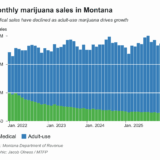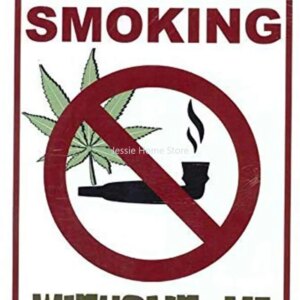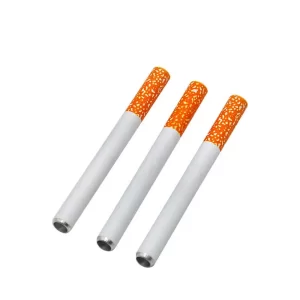“Cannabis is dangerous.” “Weed leads you to other drugs.” “Marijuana opens the door to harder substances.”
How many times have we heard these claims, without clear support or solid scientific evidence behind them? Too many to count, right? Now, a study backed by the Japanese government itself is using hard data to dismantle one of the most persistent theories in prohibitionist discourse: the gateway drug hypothesis, as shared by Marijuana Moment.
In January 2021, the Japanese Clinical Association of Cannabinoids, with support from the Japanese Ministry of Health, Labor and Welfare, conducted an anonymous survey of 3,900 people who had used cannabis at some point in their lives.
After an extensive analysis and review process, the results were published this month in the journal Neuropsychopharmacology Reports, marking a turning point in the scientific and political approach to cannabis in the country.
Booze, Smokes… Then the Bud
One of the most compelling findings is that cannabis is not actually the gateway drug to substance use. In fact, in most cases, it was the third substance used, after alcohol and tobacco: two legal drugs, widely socially accepted that, paradoxically, have the highest documented rates of harm.
The study reveals that almost half of the respondents who reported cannabis as their third drug did not subsequently use any other substance. The odds of marijuana users progressing to other substances were actually low:
- 1.25 for alcohol
- 0.77 for tobacco
- 0.08 for methamphetamine
- 0.78 for other illicit drugs
What If It’s Not Cannabis, But the World Around It?
Rather than a causal relationship between cannabis and problematic use, the authors point to what is known as the “common liability” theory, which suggests that shared factors (such as age, education, socioeconomic status, or social context) predispose a person to try different substances, regardless of which came first.
“Rather than implying a causal gateway effect of cannabis use, the results highlight the importance of considering the broader life context in which substance use occurs,” the authors write.
At the same time, the study raises a rarely discussed but crucial issue: in contexts with severe prohibitionist laws like Japan’s, cannabis and other illegal drugs share the same distribution channels, increasing the user’s exposure to other substances, not because of the plant itself, but because of the illegality surrounding it.
In the report’s words: “It may be the regulatory environment, rather than the pharmacological properties of cannabis itself, that creates a ‘gateway’ effect.”
In addition, it comes as a surprise that this study originates from the Japanese government, one of the least tolerant countries when it comes to cannabis. Perhaps this type of initiative portends a hopeful change on the horizon?
What if cannabis were an exit drug?
This is not an isolated case. In North America, multiple recent studies indicate that cannabis not only does not encourage the use of other substances, but in some cases functions as a substitute for more dangerous or addictive drugs, helping people overcome problematic use.
In the US, for example, significant declines in alcohol and cigarette consumption among young people were recorded after cannabis legalization. Other research found reductions in the use of opioids, benzodiazepines, and alcohol among patients with legal access to medical cannabis.
Even the American Medical Association (AMA) has published studies linking long-term medical cannabis use to reduced pain and lower dependence on traditional painkillers.
One fact remains: despite the growing body of scientific data refuting the “gateway drug” myth, it continues to weigh heavily on public policies, institutional discourse, and fearmongering campaigns. The Japanese study -one of the largest and most representative conducted in Asia so far- demonstrates that it’s time to move away from assumptions and build our arguments on evidence.
Originally posted in El Planteo.




























